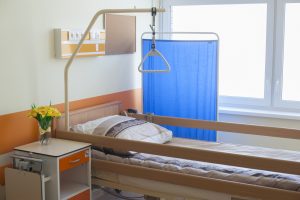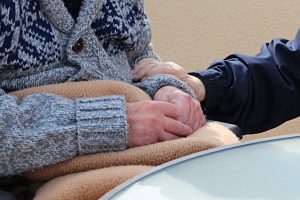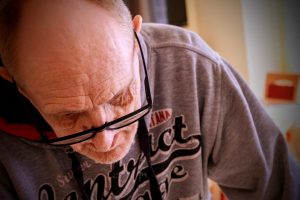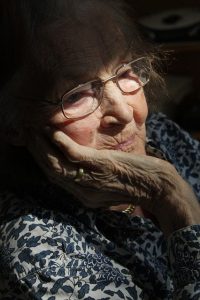 A military veteran who contracted coronavirus in mid-March at a Florida VA nursing home in Pembroke Pines has died, state officials confirmed Saturday.
A military veteran who contracted coronavirus in mid-March at a Florida VA nursing home in Pembroke Pines has died, state officials confirmed Saturday.
The deceased veteran, who was not identified, was one of two men living at the nursing home for veterans in Pembroke Pines who were hospitalized last month after they tested presumptive positive for the coronavirus, according to the Florida Department of Veterans Affairs. They were transferred to a local hospital.
The two residents at the Alexander Nininger State Veterans Nursing Home were tested after they showed signs of a low-grade fever, according to officials. They have been the only veterans at the state’s seven veteran nursing homes and domiciliary facilities who have contracted the disease since the coronavirus outbreak in Florida last month.
With more coronavirus test results rolling in, the number of confirmed COVID-19 cases among veterans at the Miami VA hospital has more than doubled to 36 as of Saturday, according to U.S. Department of Veterans Affairs records. One of those veterans, a man in his 90s, died last week, according to the Miami VA officials.
About half of those patients are being treated at the downtown Miami VA hospital and the other half are quarantined at home, records show.
The Miami VA hospital now surpasses the Orlando VA facility, with 34 positive COVID-19 patients, for the most coronavirus infections in Florida.
Statewide, 104 veterans have tested positive for the viral disease at federal VA hospitals as of Saturday, up more than 30 percent this past week.
That figure, however, represents less than 1 percent of the total confirmed COVID-19 cases statewide, according to Florida Department of Health records. As of Tuesday, there have been 13,629 positive test results and 254 deaths in Florida due to the highly contagious respiratory disease.
The 372-bed Miami VA hospital, which serves 58,000 veterans in Miami-Dade, Broward and Monroe counties, has also had four staff members test positive for the viral infection, and the employees are all in isolation, mitigating further risk of transmission to other patients and staff, according to the U.S. Department of Veterans Affairs.
The Miami VA hospital was among dozens of veterans’ facilities nationwide recently cited by a federal inspector general for failing to maintain adequate equipment and supplies, including critical N95 masks for healthcare workers. The reality is, hospitals in and outside the VA system are reporting shortages of the N95 masks as well as traditional surgical masks.
On Monday, Miami VA officials started requiring employees to use and reuse surgical masks for one week, unless they are treating patients with COVID-19 or their masks become soiled. In those instances, they can ask supervisors for a replacement.
“These masks are expected to be used for a week at a time, longer if possible,” Miami VA Healthcare System Director Kalautie JangDhari told staff in an email Sunday that was updated with the same message Wednesday. “Masks may be removed while eating or drinking, but must be immediately put back on.”
Despite the new policy, Miami VA healthcare workers say surgical masks are not as thick or effective as the N95 masks that were found to be in short supply at the hospital by federal inspectors during a visit last month.
Sadly, nursing homes are habitually understaffed. With the novel coronavirus pandemic, staff shortages are even worse. However, nursing homes and assisted living facilities are known to keep resident to staff ratios high, and staff numbers low, in an effort to boost profits. These facilities are notorious for placing profits over people, which can ultimately lead to serious injuries and death.
The staff at nursing homes and assisted living facilities are not always properly trained on infection control measures, which means they are often unaware of the policies and procedures to prevent infection. It has been documented that Florida nursing homes have struggled with infection control. There have been repeated instances of workers failing to wash their hands as they move between patients.
The CDC has released new regulations for how to prevent the spread of COVID-19 in nursing home and assisted living facilities, which include:
- Implementing symptom screening policies
- Restricting visitors and nonessential personnel
- Active screening of health care personnel, including documenting respiratory symptoms and temperature
- Training staff on infection control
- Restricting resident movement and group activities
Continue reading
 Florida Personal Injury Lawyers Blog
Florida Personal Injury Lawyers Blog








